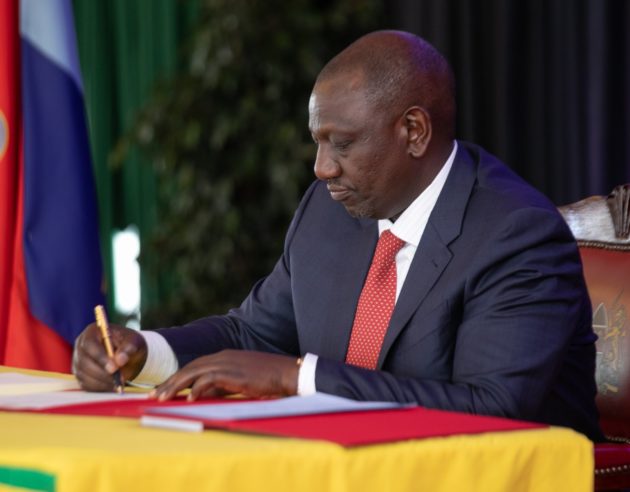- Details
- East Africa
- 805
President William Ruto is expected to sign the Affordable Housing Bill into law this morning, marking a significant step towards the implementation of the housing project and the commencement of the collection of a 1.5 per cent housing levy from Kenyans starting this month.
The contentious Bill was forwarded to the president last week following its approval by Parliament.
However, opposition lawmakers have raised objections, citing inadequate public participation and expressing concerns that the legislation will exacerbate the financial burden on many Kenyans already facing high taxes.
Under the provisions of the new law, both employers and employees will be required to contribute 1.5 percent of their income towards the construction of affordable housing units across the country.
Earlier this year, in January, the implementation of the housing levy was halted by a court order, which stipulated that it could only be enforced once appropriate legislation was enacted to formalize it into law.
President Ruto has welcomed the court’s decision, affirming the government’s commitment to comply with the directive and enact the necessary legislation. The bill has now been passed by Parliament, paving the way for its enactment. Capital News






